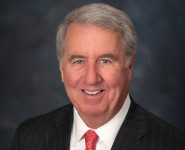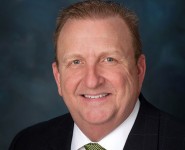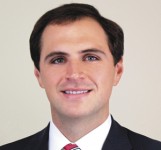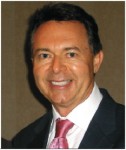On January 1, 2011 about 8,000 Baby Boomers (people born between 1946 – 1964) turned 65 years of age. Every day for the next 18 years, others will turn 65 at the same rate. While many may know about this trend, a lesser known fact is that, according to the US Census Bureau, 70% of all businesses (with more than 1 person on the payroll) or 4.2 million businesses are owned by people over 53 years old.
What are the prospects for transferring those businesses when the owner is ready? The need to liquidate ownership will impact all of us, young and old, as the boomers try to capture the wealth that they have created over their lifetime. But there is good reason to believe that there is going to be far less of it than they might expect. In fact, the elements of a perfect storm are brewing.
If every owner in the over 53 crowd is depending on selling their business to fund the next stage of their life (be it retirement or something else), the amount of capital required to close all those transactions is over $10 trillion dollars. Where is the money going to come from to fund those acquisitions?
There has been a stock market bubble, a housing bubble, a dot-com bubble, but never before have we seen an owner demographic bubble. This “age wave” is coming like a tsunami.
There is currently about $535 billion in funds available (“private equity overhang”) to acquire businesses — nowhere near the amount of equity needed to do even 10% of the transactions that will be up for sale. Even if fresh investment capital becomes available, the amount of supply will drive values down significantly.
There is a Market Transfer Cycle, and every 10years there has been some kind of recession. It is currently a seller’s market but the bull has had a long run and it will get tired sometime over the next three years. It always does. When it does, it will become a buyer’s market of major proportion and only the strongest deals will get transacted.
There are three major forces at work and together they are impacting the owner’s situation exponentially:
- Many businesses for sale. In addition to those businesses owned by retiring baby boomers, there are over 7,700 companies in inventory that are currently owned by private equity firms that will become available. Furthermore, there are owners less than 65 years old who will be seeking capital for growth initiatives. There will be lots of competition for the retiring business owners and all of it will drive prices down.
- There are not nearly enough funds to satisfy all the sellers looking to transact. Private equity fundraising won’t be able to keep up. Limited funding will make buyers very selective and only the A++ deals will get done and even they will have reduced purchase price multiples.
- The economy goes in cycles and there is only about another three years left to the current seller’s market. Can an owner really afford to wait it out until the market cycles back? It may take significantly longer than any time in the past.
What’s the result? Only the best deals — maybe top 10% — will get transacted. If owners miss this current cycle they will have to wait at least eight years until the market starts to turn in favor of doing deals again, all the while, the boomers are flooding the market with their companies up for sale.
So, if you are a business owner, with thoughts of selling anytime in the next eight years, how do you achieve getting your company in a very competitive position for a transaction?
First: Establish a sense of urgency and a realistic view of the value of your business today. Look at it the way a buyer would. Remember the value for the buyer is based on what he can get out of it, not what you put into it.
Second: Get a road map developed now to increase value. This can be done without significant growth, dramatic improvement in earnings or even increasing your debt. Hitting the current seller’s market window means getting the business ready for a sale process in the next two years (it might take another year to find, negotiate, and close on an acceptable transaction).
Third: Create priorities for how you focus your efforts over the next 2-3 years. You’ve spent a lifetime working “in” the business, now it’s time to start working “on” the business. This isn’t like selling your house where you can get it market-ready in a month or so.
And finally: Get some help from an expert. The storm is coming and riding it out without eroding value will be extremely difficult. The issues here are vast and complex so find a professional who has a portfolio of clients that have done precisely this. You can’t go it alone and expect to be successful. You haven’t done it thus far and so you probably are ill-equipped to do it in the future. After all, you still have a business to run and other demands on your time. The ROI on this kind of help is significant but there aren’t that many qualified advisors available who can help you plan and execute a value enhancement process that will get you where you need to be -well within that top ten percent.
Boomers have been a driver of economic growth and consumer spending even before the early eighties (remember the hula hoop?) when they started to reach their peak earning years. This demographic group turbocharged rates of home ownership, consumer spending and, most important of all, employment. Almost everyone has either paid or benefited from the taxes they have generated. Will their business ownership legacy be another boon or a victim of a perfect storm?
This article was written by Gary Ampulski and was originally published on FORUM by Axial, April 8, 2015. Gary is Managing Partner of Midwest Genesis and is not affiliated with Butler Snow Advisory Services, LLC.
Read More




 a major investor in CreatiVasc’s research and development since 2013, we are pleased to welcome CreatiVasc and FutureMatrix to the Brookhaven family. Medical advancements on the part of both companies support Brookhaven’s mission of embracing innovation to improve clinical outcomes resulting in cost savings for the healthcare system.”
a major investor in CreatiVasc’s research and development since 2013, we are pleased to welcome CreatiVasc and FutureMatrix to the Brookhaven family. Medical advancements on the part of both companies support Brookhaven’s mission of embracing innovation to improve clinical outcomes resulting in cost savings for the healthcare system.”


